Isenhart
Good intentions haunt an elderly peasant couple as they struggle to reckon with a good deed gone wrong.
This short story was written in response to The Storyletter’s Flip a Common Trope writing prompt.
Ansgar and Alruna stared at each other across the tiny table in their humble cottage. The small farmstead stood like an island in a dark sea of forest. The few hours of daylight permitted by the palisade of trees were already burning low. Soon the sun would slip behind the curtain of forest, and they would be at the night’s mercy—at his mercy.
“We can’t go on like this,” Alruna said to Ansgar. “If you won’t do something about it, I will.”
“Oh, you’ll do something, will you? Haven’t you done enough?”
“What’s that supposed to mean?”
“This whole mess is your doing.”
“My doing?” She rocked back in her chair with her brows raised. “How do you figure that?”
“You never had so much as a smile for him. Never gave an ounce of love.” Ansgar folded his arms over his chest and let his eyes bore into her. “Is it any wonder it’s come to this?”
“I never asked for this, did I? We were doing just fine on our own. But you couldn’t leave well enough alone. Did you ever stop to think maybe those women knew something you didn’t? Maybe they had a good reason? Of course not. Ansgar always knows best!”
“Do you know how to be silent, woman?”
“Ansgar is the big hero who will save the world! Ansgar needs everyone to love him! You should have let the wolves—
Alruna broke off as they both startled at the sound of creaking wood behind the cottage. They turned and strained to listen.
“It’s nothing,” said Ansgar, his voice trembling. “The roof settling.”
“Then you can go look,” Alruna said and reached for the knife beside the loaf of bread on the cutting board.
Ansgar heaved himself to his feet and glanced sullenly at Alruna, then toward the door at the back of the cottage that led to the attached barn where their few remaining livestock bedded down at night. He took a step toward the door, paused, then doubled back to grab his axe from its peg above the woodpile beside the hearth. Turning this over in his hand, he fixed his grip and, with a heavy head, approached the door. Pulling it open, he was greeted by the milk cow he’d brought out to the pasture that morning—or, rather, her head, laid before him in the straw. Isenhart had returned.
As soon as the boy was old enough, Ansgar had begun taking him into the forest when he’d set his traps and sometimes hunt to teach him the necessities of providing for the table. Most boys took to hunting and bushcraft with enthusiasm, but Isenhart was different. Even Ansgar had to admit that though he loved the boy as if he were his own flesh and blood, he was an odd one. For one thing, he never spoke. Not a single word. Though he was quick to learn and understood when spoken to, he simply refused to talk to Ansgar and Alruna.
Then there were the animals. The first time they had come across a live rabbit caught in one of the snares, Ansgar showed the boy how to dispatch the creature quickly and painlessly. But when it came time for Isenhart to do the same, he lingered over the task, pretending to fumble as the poor creature shrieked in terror and pain.
Ansgar shrugged it off as a novice mistake or a boy’s dark curiosity. After all, what lad hadn’t pulled the wings from a bug or two in his day? But it wouldn’t be the last time. He seemed to often miss his shots with the bow, and Ansgar would find him sitting over the beasts, watching them expire slowly. He deliberately dissected rather than butchered slaughtered livestock, and they once found a sow’s heart stashed beneath his pillow as it began to fester. Isenhart seemed entranced by fear and death in a way that chilled the old hunter in his bones. Eventually, Ansgar marched him out to the barn and took his belt to him whenever the boy went too far. When that didn’t work, he tried the rod. When Isenhart flayed a live lamb, Ansgar held his head in the trough until he nearly drowned. But nothing seemed to phase him. If anything, it made him fiercer.
Alruna hadn’t slept soundly in ages with the boy under her roof, and she had more work than ever foraging and replanting the garden now that most of the livestock was gone. Her tired old joints had suffered long enough. He was more than they could handle. She demanded that Ansgar bring him through the woods to the hillfort where the king’s men could put him to work in service and discipline him properly. Finally, reluctantly, Ansgar agreed.
But, that night, Isenhart disappeared into the forest.
It wasn’t the first time. He would often abscond into the wood. When old enough to run, he’d steal away into the forest for days and not return. The first time they were terrified and searched for him day and night. After he’d done it a few times, they stopped looking. Ansgar had said the forest spirit was part of him after his troubled beginning. It was only natural he’d feel at home there. Alruna thought differently. She said the boy was a feral beast unfit for human society. It angered Ansgar when she spoke like that—she didn’t see the boy as he did. There was something special about him, about the way he discovered him. Ansgar was meant to find him—to save him. He was sure of it.
But now they worried, not about what might happen to him in the forest, but about what he was up to out there. The tales had begun to reach them. Travelers, they said, often failed to arrive at their destination when passing through the wood. Traders no longer came by the farmstead because of the danger lurking there. And their friends from neighboring farms ceased their visits. Soon, the couple saw no one. Alruna worried about Ansgar entering the wood to hunt or forage, though Ansgar was certain the danger was not to him. He’d been good to the boy, hadn’t he?
It was Alruna who never quite got on with Isenhart. Ansgar thought she would be elated to have a child to raise. Didn’t all women love children? Wasn’t motherhood their natural calling? But from the moment the child entered their lives, she seemed perturbed by his presence. And as the child grew, she resented him even more. True, the boy was a handful, but the joyful woman Ansgar adored had disappeared when he brought the child home to live with them, and a bitter, indignant stranger had taken her place.
Alruna knew how much Ansgar wanted children, so she never told him about the herbs. They already struggled to feed and clothe themselves on the small farm most years without the burden of more mouths to feed. It would have hurt Ansgar’s pride to say their poverty kept them childless, so Alruna pretended to be barren and took the shame on herself. Still, they’d always enjoyed a peaceful and contented life together. Or, they once had. She tried to love the boy for Ansgar’s sake, but her heart simply refused. Something deep inside her revolted at the sight of him. She finally understood why mother birds shoved some chicks from their nests.
With the chickens, sheep, pigs, and now their beloved milk cow gone, it was time to face the harsh reality that they’d never last the winter on the farm. She’d put up some roots from the garden, but there was hardly enough to keep them through the long, cold season. They tried to think what could be done. Alruna began to form a plan, but she knew Ansgar would never agree if he knew the whole of it. So, she convinced him that their only hope was to fall on the mercy of the king in the high hillfort. Shameful as it was, they would have to go begging if they would survive the winter.
Alruna stood before the massive oaken gates strapped and studded with iron, wondering if the king would even believe the terrible story she planned to tell. The peasants had never been to the palisaded fort, as the tax collectors came to them. She shook with angst as they awaited an audience in the fort’s timbered hall. But even from his guarded perch, the king must have heard word of the terrible menace lurking in the forest below. He must know that traders and travelers now feared to pass. He would never suspect the elderly farmers were the cause. Would he punish them or help them free the forest of this curse?
Young King Sigward was a soft-spoken man with a gentle aspect that surprised and put them at ease. In hopes of winning his sympathy and a bit of charity, Ansgar began to explain how they had lost all their stock to an unfortunate series of accidents. But Alruna boldly interrupted with the truth: it was no accident. There was a monster on the loose—one of their making.
The king, sitting upon his rune-carved chair, leaned forward, bemused and intrigued, demanding to know how this could be.
Ansgar had left his farmstead beside the creek and trekked into the forest to check his snares and traps. As he crouched in the underbrush, retrieving a hare and resetting a snare, he heard voices in the distance. He hid himself, as the woods were full of bandits. But then he realized the voices were those of two women, and he remained out of sight because he didn’t want to be mistaken for a robber or rapist. So he simply waited for them to pass by.
But as he watched, he witnessed something he never expected. One of the women carried a child in her arms, and as she passed under the great ash tree at the center of the grove, she stepped from the path and laid the writhing baby among its gnarled roots. Then both women spat upon it, gathered up their cloaks around them, and hurried back along the path the way they’d come. No tears were shed, they never looked back, and not a word was spoken. Ansgar was horrified. Mystified. How could anyone, let alone two women, treat an infant this way?
After an hour or so, when he was sure the women would not return, and no one else had come along, Ansgar approached the tree where the child had been left. In the shade of the forest’s dense spring canopy, the baby slept peacefully, seemingly unaware of the cruelty it had suffered. Ansgar carefully pulled back the blanket that swaddled the infant. He peeked under the diaper cloth. There were no signs of disease or deformity to be seen, and he could not fathom why anyone would abandon a perfectly healthy child—especially a boy—in the forest.
He had longed all his life for a son and he wasn’t getting any younger. He could use a hand around the farm and when out hunting. And, of course, he thought of his poor wife. He knew it broke her heart all these years that they had never been blessed with a child of their own. And, though he tried to assure her that he harbored no resentment, she had to feel like less of a woman because she could not give him an heir.
Looking at this little lost babe, he knew what he had to do.
King Sigward put his face in his hands and began to weep as Ansgar and Alruna looked on in bewilderment and slight embarrassment. They didn’t know whether they should speak or perhaps leave the chamber. But then the king wiped his face and began to speak.
“My queen died in childbirth,” he said. “I also have no heir. The child, a boy, died, too.”
“Condolences, my liege,” Ansgar replied, not knowing what else to say but moved to pity by the pain the man clearly felt.
“Well, that was the tale I told the world. I should have drowned the fiend in a bathtub. Alas, I am a man of God. Or, that is what I tell myself.” He rested his head in his hands while Ansgar and Alruna exchanged confused, worried glances. “My poor wife swore it felt like the child was trying to claw its way out—trying to kill her. The physicians scoffed at her womanly weakness. When she finally succumbed, the surgeons cut her open to save the infant prince. They said it was as if a wild animal had been trapped inside—they’d never seen the like. The creature even refused to suckle from the wetnurses, but drew blood instead.”
Alruna turned to whisper to Ansgar: “I knew there was something off about that child the moment I laid eyes on it.”
“Are you never tired of being right?” Ansgar snapped.
“You understand now why we did what we did?” asked Sigward contritely. “I only regret that I lacked the mettle to finish it with my own hand. And that those nurses didn’t travel further from the path.”
“You have the chance to finish it now, my king,” Alruna said. “Unleash your knights and hounds in the forest and show the creature no more mercy than you would a bear or wild boar—for he is just as savage.”
Ansgar was a fine hunter, but his stamina was not what it once was. Having taught everything he knew to Isenhart, he worried he’d be no match for the young boy’s boundless energy. Still, he and Alruna joined the hunt, Ansgar with his spear in hand and Alruna carrying Ansgar’s bow. There would be nowhere for Isenhart to hide with the king’s knights and his huntsman’s hounds on the scent.
The forest was deep, dense, and dark. There were many places for a creature to go to ground. But a boy could not outrun hounds and horses for long. Soon, the king’s men cornered him in a stony hollow under an autumn canopy of ash and elm. They found him bathing his face in the blood of a fawn. He preferred raw flesh to that cooked over a fire.
As Sigward and his men gathered around to finish the business they’d come for, the boy grew still and let his eyes fall on Ansgar with a pitiful, pleading look. The old farmer lowered his spear. Then Sigward lowered his spear, and the rest of the knights followed.
“Oh, my son,” Sigward said, overcome with emotion, “look how you have grown.” He bent to lay his spear on the ground.
Suddenly, Isenhart shrieked, hissed, then fell writhing in the dirt. When Sigward and the knights looked up, they saw he’d been pierced through the chest with an arrow.
“No!” Sigward cried and fell to his knees.
Ansgar rushed to the dead boy’s side. “Woman, what have you done!”
“What none of you could,” said Alruna. Then she turned and headed for home where, after many years, she would once again sleep in peace.
The trope I chose to subvert was one in which a hero, usually of royal birth, is cast out into the wilderness as an infant and left to die, but is taken in by common folk who raise him (or rarely her) with respectable values until he’s ready to claim his birthright. Spare heirs were often hidden in inconspicuous places because of their high murder rate (like early witness protection), so it’s a compelling trope that probably has some basis in reality.
I thought it would be fun to ask the question: what if the exile wasn’t destined to be a hero, and they had a good reason for casting the kid out in the cold?
Examples from myth and literature:
Oedipus was famously left on a hill to die because his father feared a prophecy that claimed he would be killed by his son. Oedipus was found and raised by shepherds and we know the rest…
Romulus and Remus were left in the wilderness and suckled by a she-wolf before being taken in by shepherds. They would go on to found Rome.
Herodotus says Cyrus the Great was prophesied to overthrow his grandfather, so was ordered to be killed as an infant, but a shepherd did a switcheroo with the baby and his wife’s stillborn son and raised the child as their own until he grew up and fulfilled the prophecy.
Moses was famously left afloat in a basket and raised by strangers until his date with destiny.
Superman plays with this trope.
In a rare example of a non-heroic infant-dump, Thomas Malory's King Arthur (Le Morte d'Arthur) tries to nip his Mordred problem in the bud by rounding up babies of similar age and killing them, but Mordred survives, is raised by shepherds, and will, of course, come back to haunt Arthur later.
Do you have any other examples?


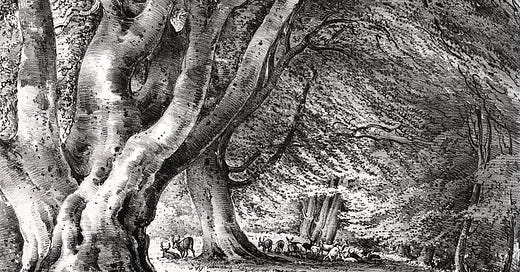


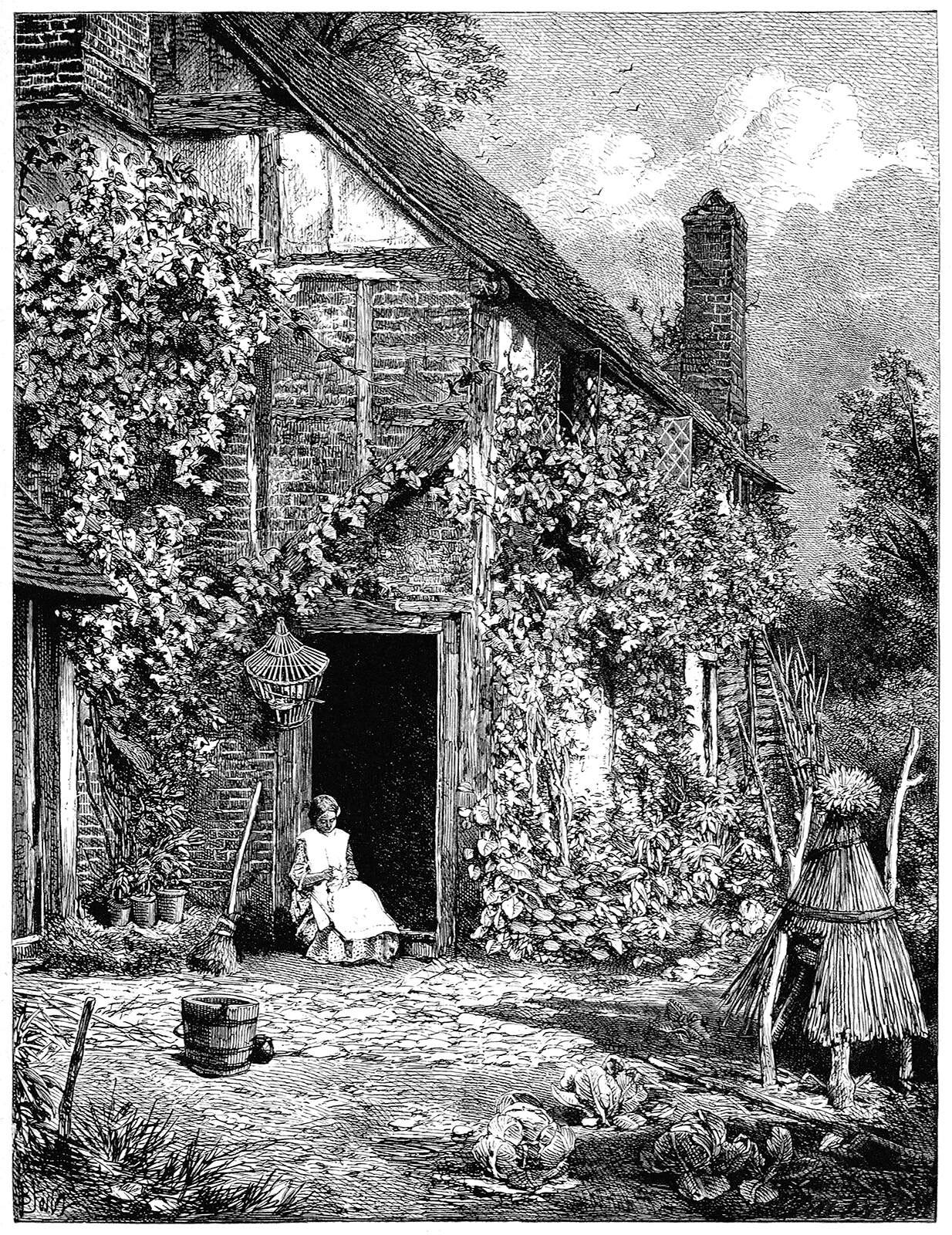


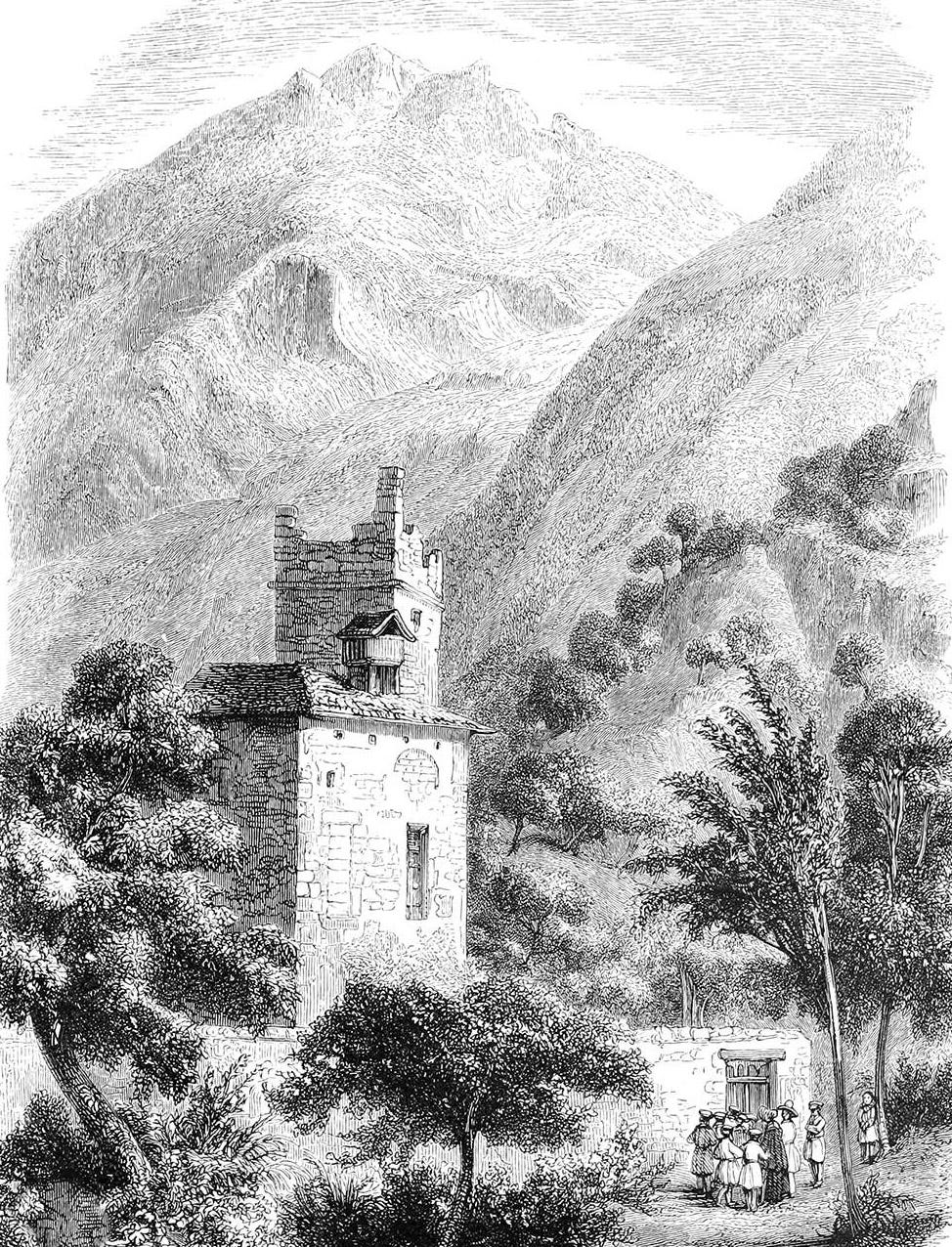

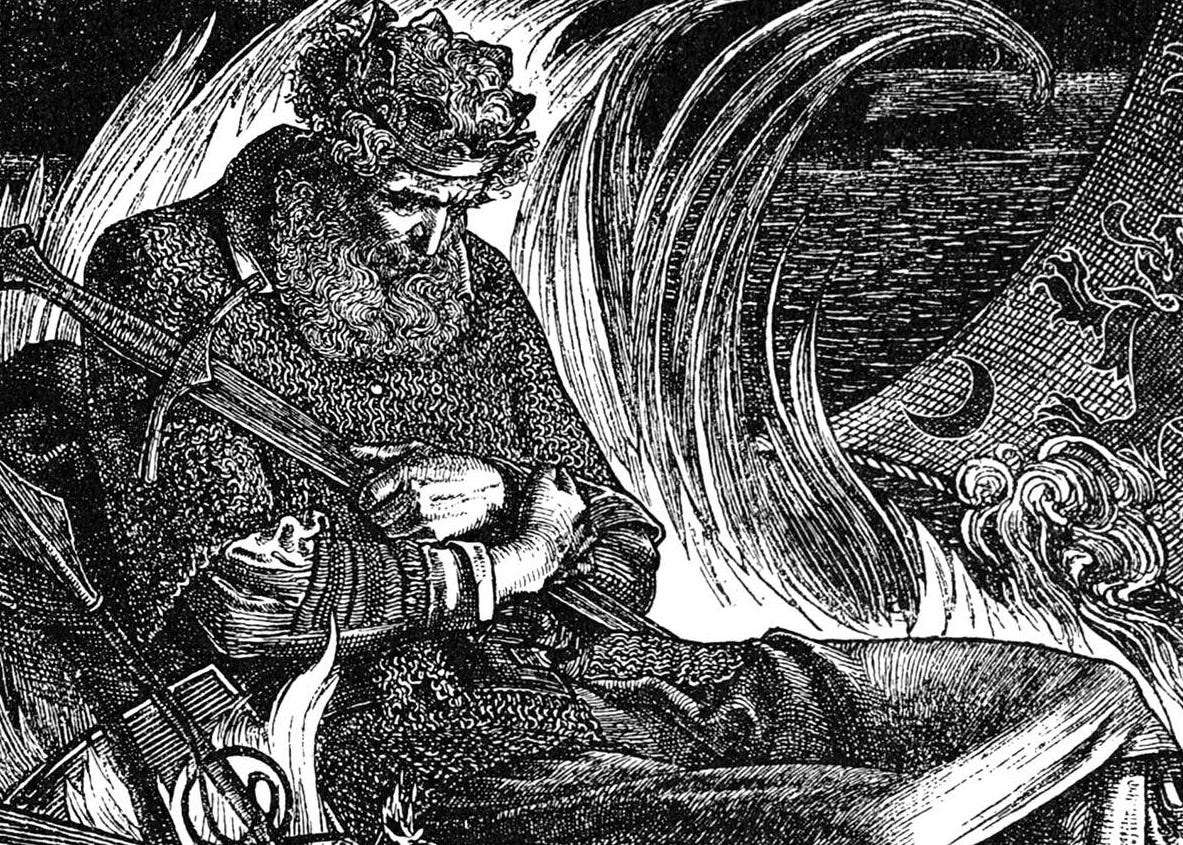

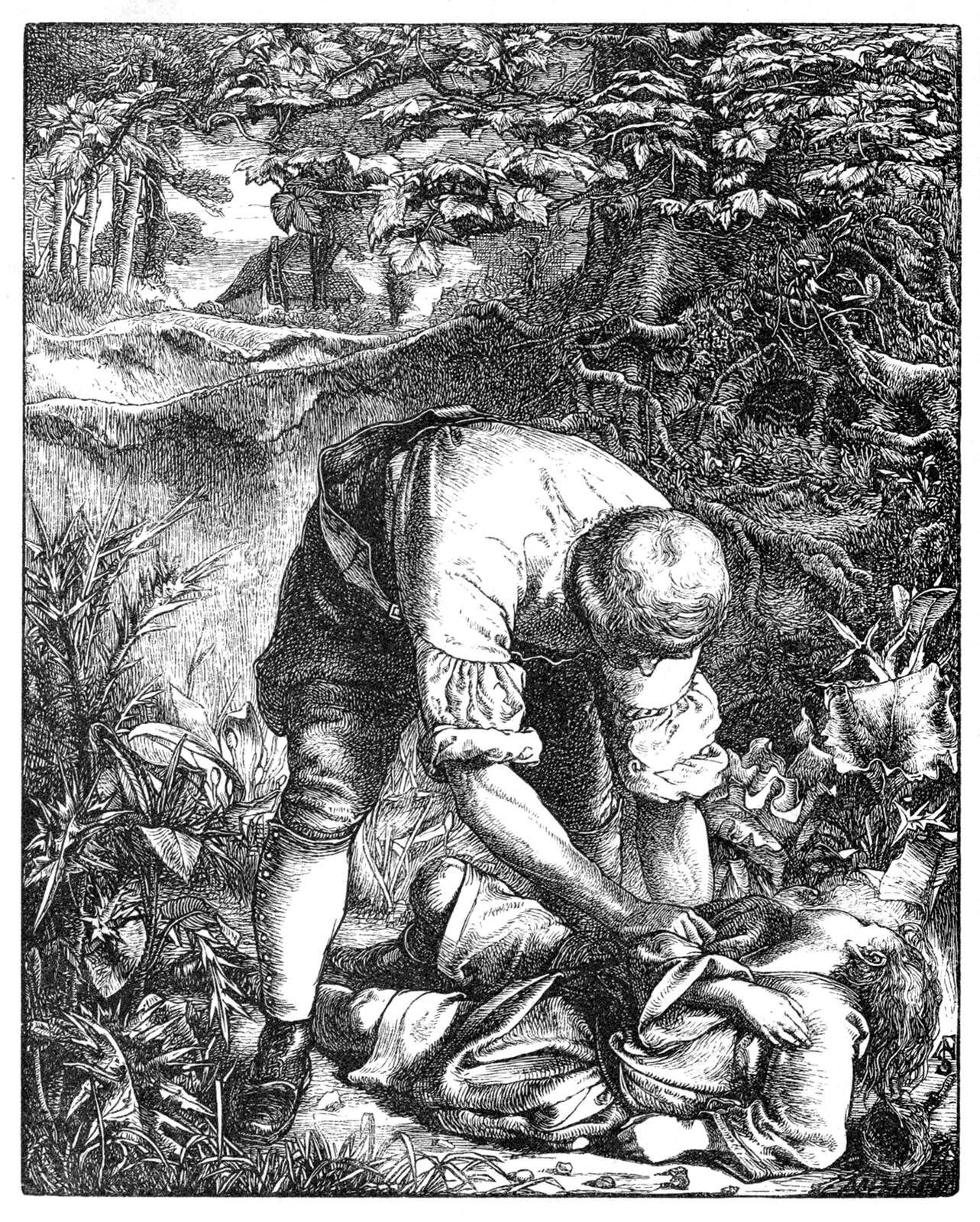





Sorry you were sick, Jacquie. Glad you were able to still find the ability to be creative. It’s tough for me if I get thrown off even just a little bit. Hope you’re feeling better.
Absolutely loved this story!! So many layers. I love how the boy’s monstrous nature is vague and left to the imagination for the most part (like he’s not a straight up werewolf or something). I also enjoyed Alruna’s arc and the dynamic you played off the husband and wife and their relationship with children.
The pacing was really good, too. I struggle with telling these types of stories because I get too involved in scene structure frameworks borrowed mostly from film. So your ability to paint the narrative and characters so swiftly and expertly without getting caught up on too many details was impressive.
Great work! Can’t wait to share this. 😁
Great story! Very interesting and so well written. Hope you're feeling better.